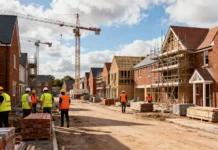The European Investment Bank (EIB) has granted a €500 million ($625.94 million) loan to Spanish rail infrastructure company ADIF to finance the construction of the Y Vasca high-speed rail line in Basque.
The loan of $625.94 million is the first tranche of financing by the EIB. The bank will provide eventually a total of €1,000 million ($1251.89 million) for the construction.
The project includes construction of 140km rail line linking the Basque Country’s three main cities of Vitoria, Bilbao and San Sebastian. It also includes the construction of junctions with the conventional line and access to the existing stations of Vitoria, Bilbao-Obando and San Sebastian-Atotxa.
The project will improve the quality of rail connections between Madrid and the Basque Country and between Spain and France. Over 70% of the line will be built in tunnels with the project scheduled for completion in 2017. The line is designed to encourage a switch from road and other forms of transport by offering the benefits of improved comfort and safety, shorter journey times and especially a positive environmental impact in terms of reduced air pollution, emissions and energy consumption.
These are important investments for both Spain and the European Union. As a priority trans-European transport network (TEN) that will connect the Iberian Peninsula to the rest of Europe, the project will also be supported by EU funding.































